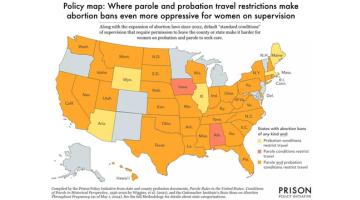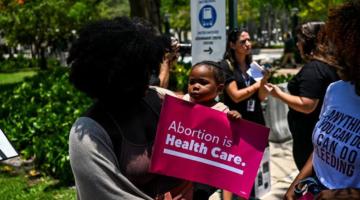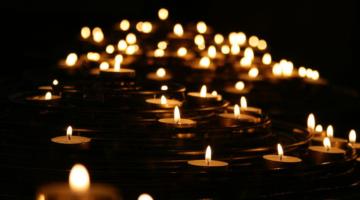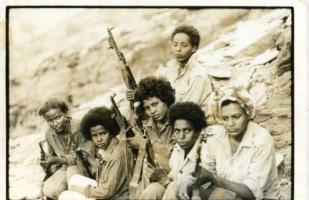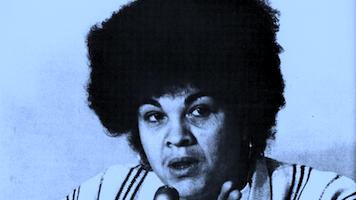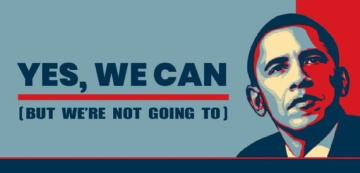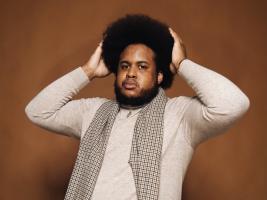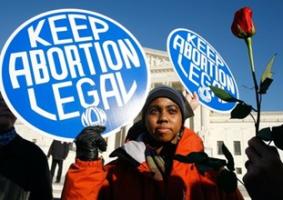A 1989 talk by Black feminist Beverly Smith reminds us that for Black women, the right to abortion can be a woman’s right to life.
In the long, dismal years before Roe v. Wade, abortion was not only illegal, but oftentimes deadly, and access to abortion was a shameful, surreptitious affair. Literary scholar Deborah E. McDowell evokes that agonized era in her astonishingly excellent book Leaving Pipe Shop: Memories of Kin. As a freshman at Tuskegee in the late sixties, MacDowell paid three hundred dollars cash for an underground abortion preformed in a dingy room in the back of a shotgun house on the outskirts of Phenix City, Alabama. Soon after, an infection forced her to a local hospital for an emergency D and C, or dilation and curettage, procedure. In Zami, her “bio-mythography,” Audre Lorde recalls growing up hearing of “butchers and abortion mills,” the “kitchen table abortions,” and the self-induced terminations –using anything from castor oil and Bromo-Quinine pills to excessive doses of ergotrate to the handle of a paint brush – that left women mutilated, hemorrhaging, or dead. Lorde was given a “homemade abortion” in an Upper East Side apartment where a Foley catheter was used to expel the embryo by rupturing the lining of the uterus - a procedure which risked puncturing the uterine walls. Afterwards, she took aspirin and Peach Brandy to handle the pain and wondered if she would die from the heavy bleeding.
Health advocate, activist, and Combahee River Collective member Beverly Smith also remembers the secretive practices and potentially deadly consequences of that era. She recounts the efforts by Black feminists (and, in particular Black lesbians) to change the political and cultural discourse around Black women’s bodily and reproductive sovereignty. As Smith noted in a 1989 talk published as “Choosing Ourselves: Black Women and Abortion,” in the Gay Community News (reprinted below), at issue was not only the question of access to safe, legal abortions. It was also about the very meaning of “life,” especially for Black women dealing with the internal ideological pressure of patriarchy and religious fundamentalism, and the externally imposed realities of poverty and racism. “We have never been willing to say clearly that we support abortion,” Smith argues, “because being able to control our reproduction directly affects the quality of our lives.” Smith makes the case that it is imperative that abortion-rights organizers meet poor Black women, who suffer most from society’s brutality, where they are. Although Black women face a continuous struggle for food and shelter, they must also choose themselves and fight for the basic right to prioritize their own health, well-being, and quality of life: “The right to abortion can be a woman's right to life.” In the United States, that right is under mortal threat.
Choosing Ourselves: Black Women and Abortion
Beverly Smith
I was asked to try and reflect on what this issue of abortion means for Black women and how we can get Black women involved in organizing. I'm not casting any aspersion at all, but I'd like to take the opportunity to speak not just as a Black woman, but as all the things that I am, which is definitely a feminist and a health feminist who's been involved in this struggle for many, many years.
So, one of the things I want to talk about is what it was like before abortion was legal, because I think there may be some people here who don't have a clue about that. For example, last night I was having dinner with some friends, two men in fact, and my sister and I were recounting the history of the development of battered women's shelters in Boston and we were talking about the time when there was no shelter. I was doing family planning counseling at Boston City Hospital and had a battered woman who was Spanish-speaking come in with cigarette burns and I had nowhere to send her. Nowhere, because there was no shelter. And my friends said they thought there were always things like shelters. So I want to return to the days of yesteryear for a moment because I think that's where the passion of many of us comes from.
This story is about my first day at college. I had a roommate who was another Black woman. And I remember, here we were, nervous and anxious out of our minds. We went down to the basement to look for our trunks, and my new roommate, who I had just met hours before, started throwing up. She claimed that she was nervous and later told me that she wasn't going to be able to finish out the year. I couldn't quite figure it out. Let me assure you, in 1965 I was quite an innocent. So I don't know how this popped into my mind but I said, the girl is pregnant. A few weeks later, she stayed out all night in violation of the rules that we had at that time. Then she came back and said she would be finishing out the year. So I believe she had an illegal abortion. This was in Chicago. I could have lost a roommate.
Now, of course, she never, ever told me what was going on. She never said that she was pregnant, she never said that she'd had an abortion. One of the most telling things she said - and this gets to the shame of all of this, both as a woman and as a Black woman - was that "You can take the girl out of the ghetto, but you can't take the ghetto out of the girl." That was a pretty intense way to start college, and we never, ever talked about it. When I was thinking of this story, I was thinking about the horrible secrecy that surrounded abortion at that time and how bad that is for the self-esteem and well-being of women.
Related to that secrecy and women's self-esteem is the fact that the movement for reproductive rights has never been successful in putting forth certain arguments. Namely, we have never been willing to say clearly that we support abortion because being able to control our reproduction directly affects the quality of our lives, and of course, in some instances, affects whether we have any life at all. I'm talking, of course, about death from illegal abortion. There are lots of reasons why we've never asserted this argument. One is that it goes directly against our sexist role conditioning. It's very hard for women to say that when the deal goes down, we choose ourselves. This may mean choosing not to have a baby.
When I wrote that phrase - choosing ourselves, rather that choosing to have a baby - it gave me some insight about the question of why there's been such strong lesbian involvement in the reproductive rights movement. I think it may be because this struggle has to do with giving our love to women. I think so many lesbians work on abortion because we deeply value women's lives, all women's lives, and know in our guts and in our hearts that women need access to abortion in order to have any kind of life at all.
I want to make some comments about the semantics of the abortion struggle and then I want to say a few things about Black women and abortion. It occurred to me this morning that what the anti-abortion people mean by life and what I mean by life are two very different things. Life for them is mostly a biological phenomenon. They don't care about the quality of life for those babies and their mothers, who for many valid reasons don't want a child or feel that they can't have a child, no matter how much they might want to have one. What I think we're fighting for is decent standards of life, including the potential for growth, for all people, including women.
We're fighting for that throughout the lifespan, not just at certain "sacred moments," as the so-called pro-life people would say. And I think there really needs to be an examination of and a commitment to honest terminology about what we're really fighting for. Because I think the truth is very powerful. If we were able to sit down with women and say, "Look, this is the deal, it's not some highfalutin' constitutional issue, and we're not going to cloak it in those terms," we might actually involve more of the kind of people that we would like in this movement.
On that note, I would like to talk about some of the issues around Black women in the struggle for abortion. This is problematic, although there certainly have been many of us who have been involved. One thing I feel is that the feminist connection to abortion sometimes turns Black women off, particularly because feminism is so closely associated with white, with white women. That's the immediate image.
Somewhat connected with that is religious fundamentalism. Because as I often say, you people haven't seen fundamentalism - all these TV evangelists to the contrary - until you have seen Black people be fundamentalists. That's not the only tradition of the Black church, at all, but some of us have been fundamentalists since the 19th century and "born-again"; you know, I heard that phrase long before it was picked up by the media. I think religious fundamentalism is something we have to grapple with because when you're talking about people who are still very involved in the church, abortion is a very difficult issue to try and raise.
Now we get to the fear of genocide. Last year I finally came to the conclusion that, yes indeed, genocide is a real possibility. Now, of course, there has been a genocidal way of life in this country since we got here as slaves, but there's something about doing AIDS work and my sense that Black peoples' number are actually going to go down in the next decade or so that make me think about genocide in a whole different way. But genocide has always been the fear of Black people, particularly around contraception, birth control pills and abortion.
I have always said that what's genocidal is not being able to control what happens to you. And as people have mentioned, forced sterilization is something that still goes on. The fact that sterilization is paid for or can be paid for through public funding, whereas abortion cannot, is itself a type of force - it's not even so subtle a force. There have been other even more blatant instances. I think with the specter of AIDS what we have to look at is Black women. Black women are 50 percent of the cases of women with AIDS, perhaps more at this point, closely followed by Latinas. When you're talking about women and AIDS, think women of color. Whenever you hear women and AIDS, think women of color. That should be your first image, because that gets lost, I have seen it get lost repeatedly and recently on the part of people who are making policy for us.
We have to be very concerned about women of color being forced to be sterilized or have abortions because they are at high risk or because they are HIV positive. And every woman, even a woman who is HIV positive, has the right to make the decision about whether she is going to have children or not.
Here are a couple of things in conclusion. One is that when we're talking about involving Black women in this movement or any movement, we have to look at where abortion and other health concerns fall in the priorities of Black women, particularly poor Black women. It takes space in your life and control of your life to be able to think about working on preserving a right which you might want to exercise in the future. Do you see how speculative that is? You know, maybe in the future or maybe my daughter... You see, that's not immediate and what people living on the edge are dealing with are immediate concerns. When obtaining food and shelter are your most pressing needs, fighting for abortion or doing political work around any issue is unlikely.
Health in general is not high up on the list of priorities of communities of color at this point. Because you can't really think about health, going to the doctor, let alone all the stuff that has been mashed on us in the last decade or so around wellness, if food and shelter are literally your priorities.
Another thing that is very important is that movements end up close to where they start in terms of who is involved in them. Let me give you an example. In 1988 I was one of a few women of color involved in working on the Women and AIDS conference in Boston. There was a fair representation of women of color at that conference; I would say about ten percent. But if 70-80 percent of women with AIDS are women of color, that's really skewed. Where were the numbers? Well, there are a lot of explanations, but I think that because the conference really started in the white community, it wasn't able to go that much farther. Later on in the year, we started an organization called the Black Women's Council on AIDS, an all women of color group. And because of where it started, we had a predominantly Black group come out for our forum.
So I think if there was such a thing as a Black women's group in the Black community or in some Black community somewhere that was working on reproductive rights issues, that's where I think you might see some of the participation that you want. I don't know how to bring that about exactly - how can women of color be empowered to work on this issue in their communities? So that's my spiel for today. I did bring visual aids with me. I have buttons from the movement and there's one button I want to quote, because it's from the Third World Women's Committee of the Abortion Action Coalition that formed in 1977. One of our members came up with “The right to abortion can be a woman's right to life,” which I always thought was a very profound statement. Thank you.
Beverly Smith, “Choosing Ourselves: Black Women and Abortion,” Gay Community News (February 19-25, 1989).

